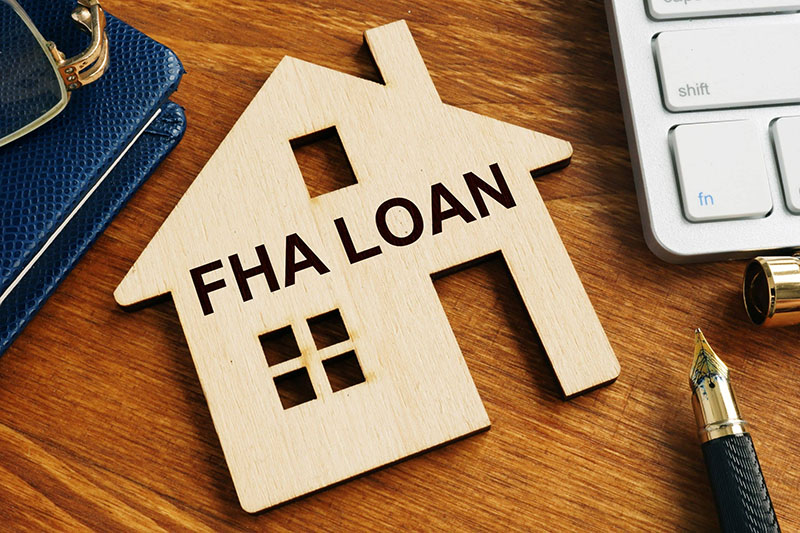CALL: (714) 210-5323

FHA, VA, and conventional loans are similar in that they're issued by banks and other approved lenders. But differences do exist between them.
If you have a low credit score, you might want to look into getting an FHA-insured loan because other loans typically aren't available to those with bad credit. But if you have good credit, you might benefit more from a cheaper conventional loan. If you're a current or former military service member, you should investigate getting a VA-guaranteed loan, which might be the least expensive of all three loan types.
Here's what you need to know about conventional, FHA-insured, and VA-guaranteed loans:
Conventional Loans
…are not insured or guaranteed by the federal government. Unlike federally-insured loans, conventional loans carry no guarantees for the lender if you fail to repay the loan. For this reason, if you put less than a 20% down payment on the property, you will most likely have to pay for private mortgage insurance (PMI) to protect the lender when you get a conventional loan. If you default on the loan, the mortgage insurance company makes sure the lender is paid in full.
A conventional mortgage falls into one of two categories: conforming or non-conforming loans. Conforming loans must adhere to guidelines that the Federal National Mortgage Association (Fannie Mae) and the Federal Home Loan Mortgage Corporation (Freddie Mac) set and are subject to amount limitations. These loans are available to everyone, but they're more difficult to qualify for than VA-guaranteed and FHA-insured loans. Because conventional loans don't have government insurance, they pose a higher risk for lenders so credit and income requirements are stricter than for FHA-insured and VA-guaranteed mortgages.
Generally, you can get a conventional conforming loan if you:
What Credit Score Do I Need to Get a Conforming Mortgage Loan?
As of November 2021, Fannie Mae generally requires borrowers to have a credit score of 620 or 640, and depending on the circumstances, Freddie Mac requires a score of 620 or 660 for a single-family primary residence. Your lender may also have stricter requirements.
Other types of conventional loans, which aren't conforming, include jumbo, portfolio, and subprime loans.
FHA-Insured Loans
As the name implies, an FHA-insured loan is a loan that the Federal Housing Administration (FHA) insures. If you default on the loan and your house isn't worth enough to fully repay the debt through a foreclosure sale, the FHA will compensate the lender for the loss. If you're behind in your mortgage payments on an FHA-insured loan, you get access to special loss mitigation options that specifically apply to borrowers with FHA-insured loans.
Because the loan is insured, the lender can offer you good terms, including a low down payment—as low as 3.5% of the purchase price. This type of loan is often easier to qualify for than a conventional mortgage, and anyone can apply. Borrowers with a FICO credit score as low as around 500 might be eligible for an FHA-insured loan. To qualify for the lowest down payment, your score will need to be 580 or higher. And FHA-insured loans have a maximum loan limit that varies depending on the average cost of housing in a given region. To learn more about FHA loan limits, visit the U.S. Department of Housing and Urban Development (HUD) website.
Mortgage Insurance Premium or "MIP"
You will have to pay a mortgage insurance premium or "MIP" as part of an FHA-insured loan. (Conventional mortgages have PMI and FHA loans have MIP.) The premiums that borrowers pay contribute to the Mutual Mortgage Insurance Fund. FHA draws from this fund to pay lenders' claims when borrowers default.
VA-Guaranteed Loans
Again, as the name implies, a VA-guaranteed loan is a loan that the U.S. Department of Veterans Affairs (VA) guarantees. This type of loan is only available to certain borrowers through VA-approved lenders. The guarantee means that the lender is protected against loss if the borrower fails to repay the loan.
To get a VA-guaranteed loan, you must be:
These loans can be guaranteed with no money down with no private mortgage insurance requirement. Borrowers usually have to pay a funding fee—a one-time charge between around 1.25% and 3.6% of the loan amount. For specific eligibility requirements, visit the VA website: https://www.benefits.va.gov/homeloans/
This material is not provided by, nor was it approved by the Department of Housing & Urban Development (HUD) or by the Federal Housing Administration (FHA). It is not intended to be a substitute for legal, tax or financial advice. Consult with a qualified attorney, accountant or financial advisor for additional legal or tax advice.
* There are some circumstances that will cause the loan to mature and the balance to become due and payable. The borrower(s) must continue to pay for property taxes and insurance and maintain the property to meet HUD standards or risk default. Credit is subject to age, minimum income guidelines, credit history, and property qualifications. Program rates, fees, terms and conditions are not available in all states and subject to change.
Larry Paul
NMLS #829110 | DRE #01183375
2552 White Road, Unit B
Irvine, CA 92614
Phone: (714) 210-5323
C2 Financial Corp., NMLS #135622 | BRE #01821025